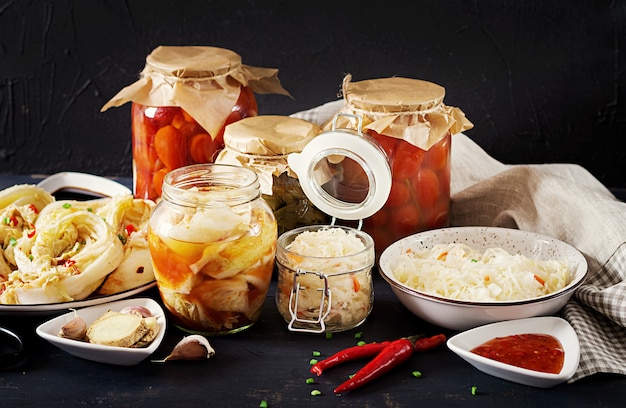
Fermented foods are all the rage these days, but is there any truth to the health benefits they supposedly offer? Let’s dive into this topic starting with Donna Schwenk’s story. Thirteen years ago, at 41, Schwenk was pregnant with her third child and developed preeclampsia. This condition led to complications, causing her to undergo a C-section seven and a half weeks early to deliver her baby, Holli, who weighed just four pounds. Schwenk herself faced diabetes, high blood pressure, and extreme fatigue, leaving her struggling to care for her newborn.
Desperate for solutions, Schwenk stumbled upon a book called “The Body Ecology Diet” and learned about kefir, a fermented milk drink rich in probiotics. With hope, she added two teaspoons of kefir to Holli’s milk, and in a month, Holli gained four pounds. Schwenk also started drinking kefir, and within 12 weeks, her health issues improved significantly. She felt truly well for the first time in years.
Inspired by her transformation, Schwenk wrote “Cultured Food for Life” and became a strong advocate for the benefits of fermented foods. She believes that these foods, loaded with good bacteria, can improve more than just digestion—they can also boost immunity, help with weight metabolism, and even impact mood.
Schwenk is featured in a PBS special “Health Breakthroughs” that explores the scientific research into fermented foods like kefir, yogurt, and sauerkraut. Fermented foods have gained popularity, even being named a future food trend by The New York Times. Michael Pollan, a healthy eating proponent, shares his enthusiasm for home fermentation and its benefits.
Nutritionists like Kimberly Snyder advise integrating fermented vegetables into daily diets. Snyder claims these foods can help with weight loss, enhance skin, and boost energy levels as they restore a healthy balance of gut bacteria. Research increasingly points to gut health as essential for overall wellness. The gut, often called the “second brain,” produces serotonin, affecting mood and emotion.
Scientists have shown the impact of gut bacteria through experiments that transfer gut bacteria from lean to obese mice, resulting in weight loss. However, achieving a healthy gut balance can be tricky. Our modern diets, stress levels, medications, and other factors often lead to an overgrowth of harmful bacteria.
Daniel O’Shaughnessy, a nutritional therapist, emphasizes eating a variety of fermented foods to introduce diverse beneficial bacteria strains into the gut. Not just any probiotic drink will do the trick—many store-bought drinks don’t provide lasting benefits. Eating different fermented foods ensures a comprehensive range of probiotics.
Traditionally, fermentation was a way to preserve food before refrigeration. This method remains popular in various cultures worldwide and is known to enhance nutrient availability and aid digestion. Countries like Japan have long embraced fermented foods, such as miso soup and natto, which possibly contribute to their high life expectancy.
Experts suggest starting with a small amount of fermented foods, increasing gradually to avoid digestive discomfort. Look for raw, live cultures in products and consider making your own fermented foods. They can be made simply at home and include a wide range of ingredients like sauerkraut, miso, kefir, and kombucha.
While fermented foods hold great promise, it’s essential to incorporate them in moderation and variety to reap the best benefits. For optimal gut health, combine probiotics from fermented foods with prebiotic-rich foods like onions, garlic, and bananas, while avoiding excessive sugar consumption.